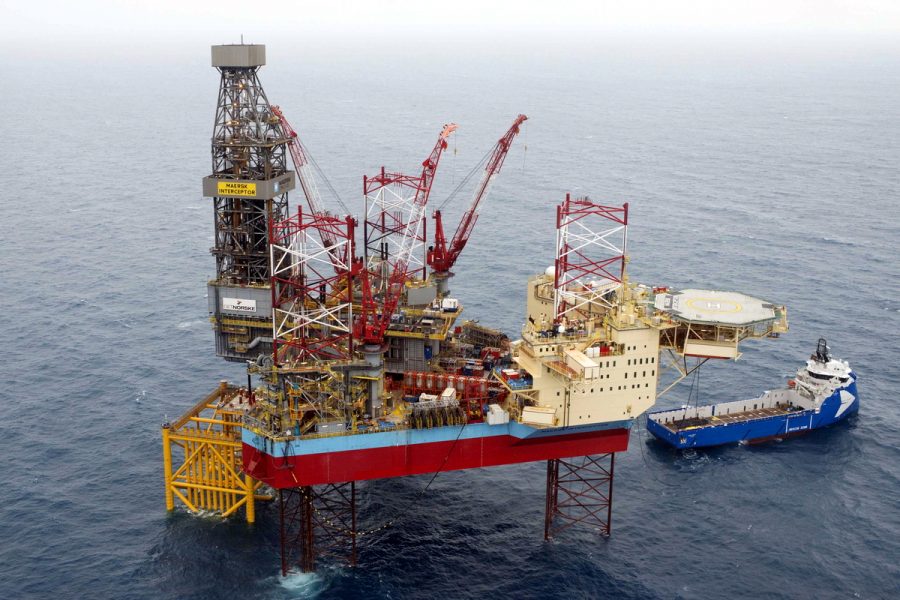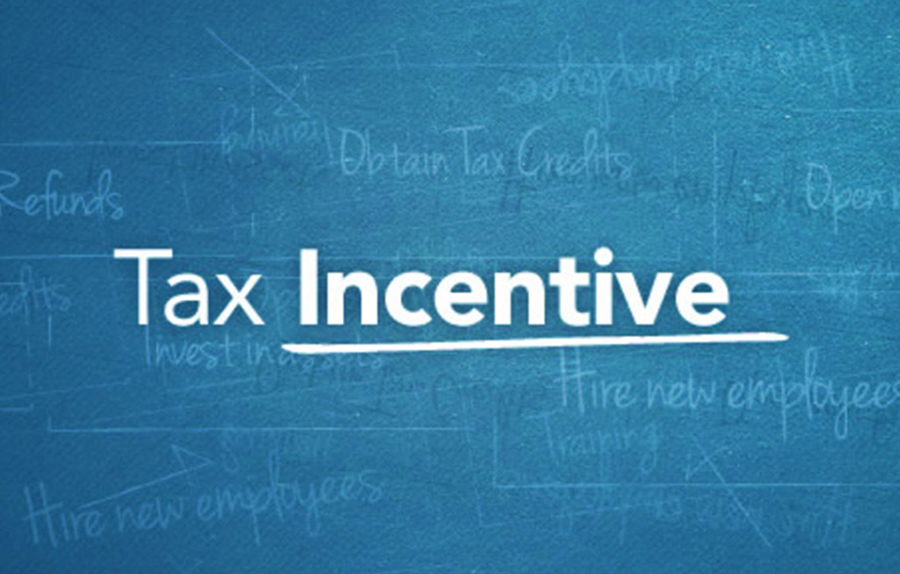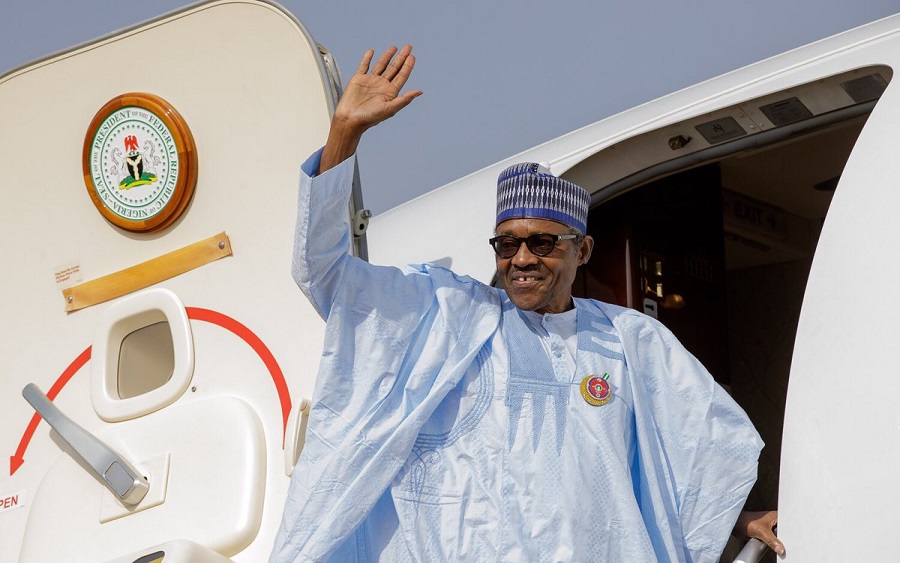ECONOMY & POLITICS
Nigeria extends deadline for marginal oilfield bids
The marginal oilfields comprised of 57 fields located on land, swamp and shallow offshore terrains.
Published
16 hours agoon
June 11, 2020
The Department of Petroleum Resources (DPR) announced earlier today that it had extended, by one week, the deadline for the registration of interest to bid for the marginal oilfields in Nigeria.
As Nairametrics reported last week, the initial deadline for interested applicants to indicate interest for the bid was supposed to be June 14.
However, the DPR has now extended it to June 21. According to Reuters, no reason was given for the extension.
The exercise, which is the first to be conducted in nearly twenty years, would be carried out electronically. The process entails expression of interest, pre-qualification, technical and commercial bid submission, and bid evaluation.
The marginal oilfields comprised of 57 fields located on land, swamp and shallow offshore terrains. The bids will enable the government to raise some much needed revenue to supplement its revenue shortfalls.
But there has been several concerns. An earlier analysis by Nairametrics noted that while there’s a need for these asset sales, there is also the concern that a bidding process under the current economic environment will be fraught with difficulties. First, there is the issue of fluctuations in oil prices which could lead to intending investors basing their valuations on pricing models that could become unrealistic in the near future.
There is also the fact that many local companies have been hard hit by the effects of COVID-19 and the ensuing significant decline in oil prices. The implication of this is that these local oil companies may not have sufficient cash flows nor be able to raise needed funds from both local and international banks.
Related
Nigeria's revenue burden to ease off as DPR announces bids for marginal oilfieldsJune 2, 2020In "Economy & Politics"
Oil & Gas: DPR announces 2020 marginal field licensing roundJune 3, 2020In "Business News"
FG’s plan for N350 billion revenue from oil field licensing suffers setbackJune 2, 2020In "Business News"
Emmanuel covers the financial services sector for Nairametrics. Do you have a scoop for him? Well then, contact him via his email- emmanuel.abara@nairametrics.com.
ECONOMY & POLITICS
Buhari announces $200m intervention funds for local oil firms, disbursements for mortgages
The fund is to boost indigenous participation in the oil and gas sector in order to grow local content.
Published
2 hours agoon
June 12, 2020
President Muhammadu Buhari has announced the disbursement of funds from the $200 million Nigerian Content Intervention Fund to indigenous manufacturers and service providers in the oil and gas sector.
This was part of the President’s speech during his June 12, 2020, Democracy Day Speech on Friday.
This is part of the Federal Government’s effort to boost indigenous participation in the oil and gas sector in order to continue to grow local content and invariably increase investment in the sector.
According to the President, ‘’We continue to grow local content in other areas of the oil and gas sector with the disbursement of funds from the $200 million Nigerian Content Intervention Fund to indigenous manufacturers and service providers.’’
As at July 2019, the Nigerian Content Development and Monitoring Board (NCDMB), which has the responsibility to manage this fund had disbursed about $160 million to local oil firms.
READ MORE: The dangling fate of indigenous oil upstream operators
In a related development, the president in his speech announced Federal Government’s plan to conduct bidding process for 57 Marginal Oil Fields in order to improve revenue especially in this period of a fiscal crisis caused by the coronavirus pandemic and further increase participation of Nigerian companies in oil exploration and production business.

On the sustenance of a peaceful and conducive business atmosphere for the oil and gas sector, President Buhari pointed out that with the sustained engagement of youths, opinion leaders, and other stakeholders, peace has been restored in the Niger Delta Region and oil production levels maintained.
Announcing his commitment to the development of the region and ensuring that development meant for the people of the Niger Delta to get to them, the president authorized a Forensic Audit of the Niger Delta Development Commission.
The president also announced the Federal Government’s disbursement of N7.7 billion for 868 mortgages and delivery of 1,200 housing units to low and middle-income earners.
READ MORE: Importing petroleum products must stop, NNPC has over $20bn assets – Kyari
In his statement, Buhari said, ‘’Our pursuit of affordable housing for the low and middle-income earners has received a boost with the delivery of 1,200 housing units, provision of 520 service plots with infrastructure through a Public-Private Sector partnership and the issuance of 868 mortgages totalling N7.7 Billion. Similarly, Home Renovation Loans totalling N16.2 Billion have been granted to 19,210 people.’’

Crude oil
He also reiterated the federal government’s commitment to continue with investments in the Aviation sector in order to position it as a travel and trade hub in West Africa and the African continent in general.
Airport Terminals in Abuja, Lagos, Kano, and Port Harcourt are being expanded, while the rehabilitation of the Enugu Airport is almost completed. All the airports are being raised to international standards with the provision of necessary equipment, especially navigational aids, to guarantee world-class safety standards.
ECONOMY & POLITICS
FG grants tax incentives to Honeywell, 7 others, rejects applications from WAMCO, Flour Mills
The first quarter (Q1) report shows that 18 new applications and I extension application were received.
Published
2 hours agoon
June 12, 2020
The Federal Government, through the Nigerian Investment Promotion Commission (NIPC) has released the report of pioneer status incentive (PSI) applications processed between January 1 and March 31 2020.
Pioneer Status Incentive is a tax holiday that grants qualifying industries and products relief from the payment of corporate income tax for an initial period of three years, extendable for one or two additional years.
The first quarter (Q1) report shows that 18 new applications and I extension application were received during the period. 8 applications were granted approvals-in-principle, each for 3 years. These companies made a total investment of N151.916 billion, have 1,460 staff, and are in various sectors including agriculture, construction, administrative service, information and communication, and manufacturing.
One company which had a total investment of N88.7 billion and a staff strength of 573, was granted an extension for 2 years.
The report further revealed that one company was granted a pioneer certificate with a confirmed production date. During the period, 3 applications were declined. As of March 31, 2020, 39 companies were still enjoying PSI, no application was deemed abandoned, 125 applications were still pending, and no pioneer status certificate was canceled.
READ MORE: The Different Dimensions of Investing in Agro-Tech
Some of the successful applicants for the pioneer status incentive for Q1 include Honeywell Flour Mills Nigeria Limited (manufacturing), Main Data Nigeria Limited (Telecommunication), Apple & Pears Nigeria Limited (manufacturing), Tranos Contracting Limited (manufacturing), Elvis Hotels Nigeria Limited, Medlog Nigeria Limited, Kalambina Cement Company Limited (Cement) and Wells Hosa Greenhouse Farms Limited.
Obu Cement Nigeria Limited was the only company that got an extension for Q1 whereas Flour Mills of Nigeria and Friesland Campina WAMCO were among the three companies that had their applications declined.
ECONOMY & POLITICS
Key economic feats and plans from President Buhari’s Democracy speech
Our objectives have remained to stabilize the macroeconomy, achieve agricultural and food security, ensure energy sufficiency.
Published
2 hours agoon
June 12, 2020
As long as democracy has existed, there have been divergent views, or what some researchers describe as Democracy Skeptics. From Plato’s warning of the mass rule, to contemporary critics claiming authoritarian regimes can fast-track economic programs. In the case of Nigeria, President Muhammadu Buhari, in his 2020 Democracy Day speech, claimed that Democracy, especially his administration, has brought more fortunes to Nigeria than otherwise. Below are highlights of achievements and plans of his administration quoted from his speech:
- We have witnessed 11 quarters of consecutive GDP growth since exiting recession. The GDP grew from 1.91% in 2018 to 2.27% in 2019 but declined to 1.87% in the first quarter of 2020 as a result of the decline in global economic activities due to the COVID-19 pandemic. Every single economy in the world has suffered a decline. Ours has been relatively moderate.
- In order to stabilize the economy, the Monetary Authority took steps to build the external reserves which resulted in improved liquidity in the foreign exchange market. The external reserves grew from $33.42 billion on April 29th 2020 to about $36.00 billion in May 2020 which is enough to finance seven months of import commitments.
- Agriculture remains the key to our economic diversification strategy. The Presidential Fertilizer Initiative programme continues to deliver significant quantities of affordable and high-quality fertilizers to our farmers. This initiative has also revived 31 blending plants and created a significant number of direct and indirect jobs across the value chain.
- Government is also revamping the cotton, textile and garment sector via a CBN Textile Revival Intervention Fund that would considerably reduce foreign exchange spent on cotton and other textile imports. Through the food security initiative, we are promoting “Grow What We Eat” and “Eat What We Grow”. I am also delighted that more and more Nigerians are taking advantage of the opportunities in the agriculture and agri-business sector. I assure you that the government will continue to support the Agriculture sector through the CBN Anchor Borrowers Programme and similar schemes.
- To protect our farming investments, we have deployed 5,000 Agro-Rangers and employed 30,289 in our para-military agencies. We are also integrating rural communities to the formal economy by extending access to credit and inputs to rural farmers and building feeder roads. Our efforts on growing non-oil exports have started to yield some results. For instance, in the past year, our revenue from Cocoa and Sesame Seed increased by $79.4 million and $153 million.
- Africa presents a huge opportunity for our export base diversification and we are developing our strategy to grow intra-Africa trade through the Africa Continental Free Trade Area Agreement. Nigeria has risen by 25 places on the World Bank’s Ease of Doing Business ranking from 146th to 131st and is now rated as one of the top ten reforming countries. This development is due to the Visa on Arrival policy, consistent promotion of initiatives that expand facilities available to Micro Small and Medium Scale Enterprises, robust electronic registration and payment system, seamless processing of business registration and reduction of cost of registering business by 50%. We are confident that on-going efforts would result in further improvement of this rating.
- We remain committed to expanding our mining sector. To this end, I have directed the resuscitation of the Ajaokuta Steel Plant based on Government-to-Government financing and a Public-Private Sector financing. With foreign and domestic investments and the participation of Small Scale Miners, we are harnessing the supply value chain in gold production.
- The Power Sector remains very critical to meeting our industrial development aspirations and we are tackling the challenges that still exist in the delivery of power through different strategies. We are executing some critical projects through the Transmission Rehabilitation and Expansion Programme including the: a. Alaoji to Onitsha, Delta Power Station to Benin and Kaduna to Kano among others. Our agreement with Siemens will transmit and distribute a total of 11,000 Megawatts by 2023, to serve our electricity needs.
- On transportation, another critical sector to improving our economic competitiveness, we are growing the stock and quality of our road, rail, air and water transport infrastructure. Through the SUKUK-Funded Road Projects, a total of 412km of the targeted 643km road projects have been completed, representing 64%. The Presidential Infrastructure Development Fund projects are also progressing very well. On the 2nd Niger Bridge, piling work has been completed and the approach roads are being constructed. 48% of the work on this bridge has been achieved.
- The government continues to make investments in the Aviation sector to position it as a travel and trade hub in West Africa and the wider African continent. Airport Terminals in Abuja, Lagos, Kano and Port Harcourt are being expanded, while the rehabilitation of the Enugu Airport is almost completed. All our airports are being raised to international standards with the provision of necessary equipment, especially navigational aids, to guarantee world-class safety standards.
- For the first time in over ten years, Nigeria is conducting the bidding process for 57 Marginal Oil Fields to increase revenue and increase the participation of Nigerian companies in oil and exploration and production business. We continue to grow local content in other areas of the oil and gas sector with the disbursement of funds from the $200 million Nigerian Content Intervention Fund to indigenous manufacturers and service providers.
- Digital Economy continues to play an important role in our development agenda as we move into the age of Artificial Intelligence. 43. Since the creation of the Ministry of Communication and Digital Economy, the National Digital Economy Policy and Strategy has been launched. Steps have been taken to achieve a reduction of connectivity cluster gaps from 207 to 114 as well as increase the level of 4G coverage by 30%.
- Our pursuit of affordable housing for the low and middle-income earners has received a boost with the delivery of 1,200 housing units, provision of 520 service plots with infrastructure through a Public-Private Sector partnership and the issuance of 868 mortgages totalling N7.7 Billion. Similarly, Home Renovation Loans totalling N16.2 Billion have been granted to 19,210 people.
- Get link
- X
- Other Apps
- Get link
- X
- Other Apps




Comments
Post a Comment